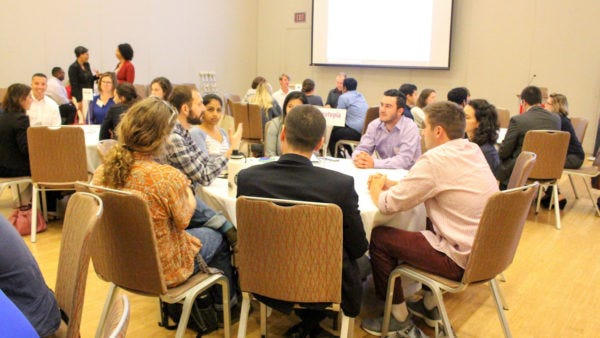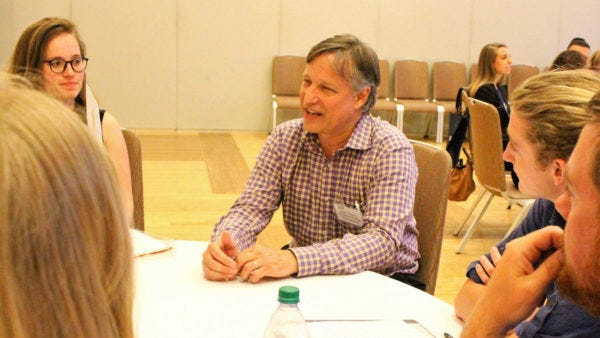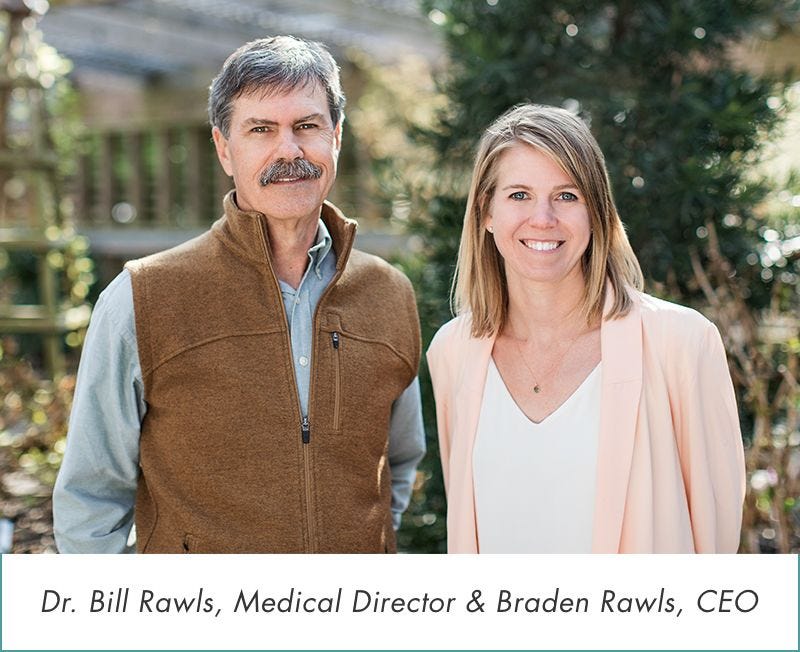
In the summer of 2015, the Business Sustainability Collaborative (BSC) at North Carolina State University’s Poole College of Management was asked to embark on a simple project. The goal? Help HQ Raleigh, a local incubator and co-working space, become a Certified B Corporations.
Selected students from the NC State Net Impact group were paired with HQ Raleigh to work toward actionable recommendations that could be implemented and iterated in ways that grew their social and environmental impact. By forming a close relationship, the students were able to understand and transform HQ Raleigh’s operations and help it gain B Corp certification. After receiving positive feedback and increased interest from local businesses, the BSC Director Jessica Yinka Thomas thought, “Why don’t we create a more formal program?”
And So the B Corp Clinic Began
With the help of the framework for B Impact Teams provided by B Lab, the nonprofit that oversees B Corp certification, NC State was able to continue its experiment by creating the B Corp Clinic. Since then, students and businesses have come together every semester to implement B Corp values and strive to increase their impact. Through the clinic, student teams are paired for about three months with a coach and a company representative to make recommendations based on the five B Impact Assessment areas: governance, workers, community, environment, and customers. It’s a mutually beneficial relationship in which students engage their team consulting skills and learn about the B Impact Assessment and ethical business practices, while organizations receive customized suggestions and tools to improve their B Impact Assessment score.
“We’re bringing together the needs of our students to engage in real-world experiential learning opportunities that are driving positive social and environmental impact with local and global companies that are seeking support to strengthen their sustainable business models.”
— Jessica Yinka Thomas, BSC Director
After five years of operation, the NC State B Corp Clinic has engaged over 300 graduate and undergraduate students from eight schools, completing 64 team projects. This spring, the clinic is completing its 10th session while facing new challenges amid COVID-19. However, teams have had an impressively smooth transition to conducting virtual meetings and presentations, showing that a positive impact can be made no matter the distance.
Alongside 40 students, the companies participating in the Spring 2020 NC State B Corp Clinic are 9miles Media, Boer Brothers Heating and Air, Get Spiffy, Inc., ndustrial.io, Prota Fiori, Spiritex/Asheville Apparel, Triangle Environmental and Unity Web Agency.

Building Community and Starting a Movement
Over time, the clinic has contributed to the NC State Business Sustainability Collaborative’s status as a “statewide hub for B Corp consultations and community.” By bringing together students from diverse disciplines, backgrounds, and institutions throughout the Triangle area, the program inclusively incorporates knowledge and skills to collectively strengthen the teams’ overall quality of work and foster collaborative new relationships between students and companies. Most importantly, the clinic’s open-door framework embodies core B Corp values.
Connections that have formed through the program evolved into a tight-knit network of B Corps and responsible business advocates in North Carolina. It’s an impressive community where many companies that have passed through the clinic return later to act as coaches and sponsors, who are essential to keep the program running smoothly.


The community-building power of B Lab extends far beyond North Carolina state lines: Similar programs operate at the University of Georgia, University of New Hampshire, University of Florida, Portland State University, Saint Joseph’s University, and IE University in Spain.
NC State’s flagship program has been the inspiration for several other university initiatives. The team is frequently contacted by students working on independent projects at other universities who are seeking ways to get involved with the growing B Economy. Due to the global interest, NC State began hosting a B Impact Teams workshop to train other academic institutions on how to organize and grow their own impact programs. So far, it has presented to the University of Georgia, University of New Hampshire, University of Florida, University of Vermont, University of New Mexico, and Lenoir-Rhyne University. As Nikki Hensley, a BSC Associate and B Corp Clinic coach, says, “Academia offers an ideal setting for the future’s leaders to get involved.”
Achieving Tangible Results
This spring, I participated as a student team leader for a project with Unity Web Agency, a B Corp web development agency. Alisa Herr, Unity’s Founder and CEO, signed up for the clinic because she was looking for strategic ways to improve her company’s operations before applying for recertification. By recommending updates to their employee policies and building an impact metrics tracking dashboard, our team predicts that Unity’s score will increase 15 points or more on the B Impact Assessment.
While any leader could make changes to their business’s social and environmental operations, the B Corp Clinic offers the chance for a dedicated team with a fresh perspective to focus on targeting specific levers that have been proven by the B Lab to make a difference.
“My previous project with Murphy’s Naturals demonstrated that a transparent supply chain is challenging yet possible and recognized by consumers. You work with these great companies, and nothing compares to the feeling you get a few months later hearing they’ve officially received B Corp certification status.”
— Nikki Hensley, BSC Associate
Repeat participation from students like Hensley, as well as business leaders, is a testimonial to the program’s impact. Companies may participate as first-timers striving for B Corp certification and then go through the clinic again when they’re due for recertification, as Lulu did in 2017 and 2019. Others in the network, like Vital Plan CEO Braden Rawls, return as coaches for the student teams and serve as advisers to aspiring B Corps.

Rawls offers her expertise as an entrepreneur who understands the “power of business in creating change.” Her natural supplement business, Vital Plan, was one of the first companies to go through the formalized B Corp Clinic in 2016. After Vital Plan gained B Corp certification, she has enjoyed being part of the North Carolina B Corp community and seeing how participants value everyone as changemakers.
Rawls returned as a coach for the spring 2020 clinic because she knows that the more B Corps they bring on, the better the organic community will be in North Carolina. She appreciates how sharing B Corp status creates a common thread between companies that may not have typically interacted due to their different industries. For example, she’s guiding Spiffy, a car wash and detailing service, to formalize its water conservation practices and use of non-toxic materials.
Adapting for the Future
The NC State B Corp Clinic has achieved immense growth by demonstrating successful outcomes over its first five years, but its leaders are always looking for ways to scale and sustain the program to serve more companies and students. The clinic currently relies on voluntary donations from participating organizations. By adapting to changing standards and frequently communicating with B Lab, the clinic aims to ensure it provides participants with the highest probability of success on the ever-evolving B Impact Assessment.
Ultimately, the goal is to “prepare students to drive impact across a range of organizational models, from starting their own B Corp or working at B Corps to serving as changemakers within traditional businesses,” Thomas says. By building community connections, helping businesses create meaningful social and environmental impact, and inspiring students, the B Corp Clinic is empowering North Carolina students and leaders to advance the movement of business as a force for good.
B the Change gathers and shares the voices from within the movement of people using business as a force for good and the community of Certified B Corporations. The opinions expressed do not necessarily reflect those of the nonprofit B Lab.

The B Corp Clinic: How North Carolina Students are Bringing Impact-Minded Business to Life was originally published in B The Change on Medium, where people are continuing the conversation by highlighting and responding to this story.